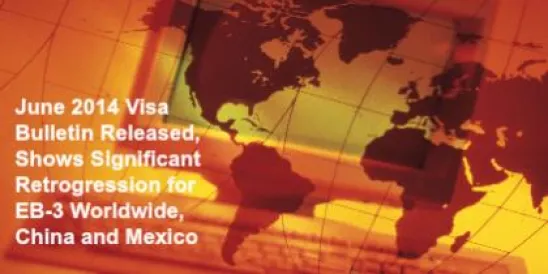To advance U.S. foreign policy and national security objectives, the U.S. maintains laws and regulations that impose economic sanctions against certain countries, individuals, and entities (the "U.S. Sanctions Program"). 31 C.F.R. § 501 et seq. The Office of Foreign Asset Control (“OFAC”) at the Department of the Treasury manages the U.S. Sanctions Program. The U.S. Sanctions Program prohibits U.S. nationals and U.S. companies from doing business in embargoed or sanctioned countries and from doing business with individuals or entities subject to U.S. sanctions laws and regulations. Penalties for violating the U.S. Sanctions Program include civil and criminal fines, imprisonment, and the loss of tax credits or export privileges.
The U.S. government also prohibits cooperation with unapproved boycotts and embargoes by other countries. 15 C.F.R. § 760 et seq. The “Arab League” boycott of Israel is the principal foreign economic boycott that U.S. nationals and U.S. companies must be concerned with today. The boycott targets companies that do business with Israel, Israeli companies, or Israeli citizens. The so-called Central Boycott Office maintains a blacklist of companies that engage in business with Israel, Israel companies, and Israel citizens. The blacklist is periodically disseminated to Arab League members.
The U.S. government has enacted anti-boycott legislation to counteract the Arab League’s boycott of Israel. The anti-boycott laws, however, apply to all boycotts imposed by foreign countries that are unsanctioned by the U.S. The penalties for violation of U.S. anti-boycott laws can include civil and criminal fines, imprisonment, and the loss of tax credits or export privileges.
Intellectual property owners have been affected by U.S. sanctions and anti-boycotting requirements. These prohibitions have at times included a ban on the payment of fees and expenses for protecting and maintaining intellectual property rights in certain countries. With certain exceptions, the existing U.S. Sanctions Program and anti-boycotting legislation allow intellectual property owners to protect their intellectual property rights by doing all of the following in sanctioned and embargoed countries:
(1) File and prosecute applications to obtain a patent, trademark, copyright, or other form of intellectual property protection;
(2) Receive a patent, trademark, copyright, or other form of intellectual property protection;
(3) Review or maintain a patent, trademark, copyright, or other form of intellectual property protection;
(4) File and prosecute opposition or infringement proceedings with respect to a patent, trademark, copyright, or other form of intellectual property protection;
(5) Pay fees currently due to a foreign government; and
(6) Pay reasonable and customary fees due to attorneys or representatives in a foreign country in connection with the above-referenced activities.
These activities are permissible because the sanctions either do not prohibit such activities or because OFAC has granted a license allowing such activities.
There are two types of licenses: General Licenses and Specific Licenses. General Licenses exclude certain types of activities from the U.S. Sanctions Program and eliminate the need to obtain written consent from OFAC to engage in those activities. 31 C.F.R. § 501.801(a). A Specific License is a permit issued by OFAC allowing an individual or entity to engage in a prohibited activity in the embargoed or sanctioned country. 31 C.F.R. § 501.801(b). Written applications for a specific license must satisfy the requirements set forth in 31 C.F.R. § 501.801(b) of the Reporting, Procedures, and Penalties Regulations. If a General License has not been granted, a Specific License must be obtained. Specific Licenses are discretionary.
Presently, the U.S. Sanctions Program targets the following countries/regions, and/or individuals or entities in those countries/regions: the Balkans (former Yugoslavia-Serbia), Belarus, Burma, Ivory Coast (Cote d’Ivoire), Cuba, Republic of Congo, Iran, Iraq, Lebanon, Libya, North Korea, Somalia, Sudan, Syria, and Zimbabwe. Most recently, the U.S. imposed several sanctions on Russia and Ukraine nationals and Russia’s Bank of Rossiya as a result of Russia’s actions in the Crimean Peninsula. The most recent sanctions against Russia were issued on April 11, 2014. The U.S. Sanctions Program regulations against the Balkans, Belarus, Congo, Ivory Coast, Lebanon, Russia, Somalia, Ukraine, and Zimbabwe do not prohibit U.S. nationals or U.S. Companies from engaging in activities to protect their intellectual property rights in those countries. As a result, intellectual property owners may file and prosecute applications, receive protection, renew or maintain registrations, or file opposition or infringement proceedings. The sanctions targeting these countries affect only certain individuals and entities from those countries. Importantly, because U.S. sanctions do target Russia's Bank of Rossiya, any payment for any intellectual property protection activity that is made through Bank of Rossiya would violate U.S. sanctions law.
OFAC has granted a General License for intellectual-property related activities for the following countries: Burma (31 C.F.R. § 537.522); Cuba (31 C.F.R. § 515.528); Iran (31 C.F.R. § 560.509); Iraq (31 C.F.R. § 575.533); Libya (General License No. 8); Sudan (31 C.F.R. § 538.514); and Syria (General License 15). As a result, intellectual property owners may file and prosecute applications, receive protection, renew or maintain registrations, or file opposition or infringement proceedings, and pay reasonable and customary fees due to government agencies or due to attorneys or representatives within those countries for intellectual property protection-related activities.
North Korea is presently the only country under the U.S. Sanctions Program for which OFAC requires intellectual property owners to obtain a Specific License to register, maintain, and protect intellectual property rights. Executive Order 13570 (April 18, 2011).
In recent years, there has been a decline in the participation of the boycott of Israel by Arab League members and by Arab League members that are also sanctioned countries under the U.S. Sanctions Program. With the exception of Lebanon, Libya, and Syria, there is no reported activity of U.S. sanctioned countries participating in the boycott of Israel. There are recent reports indicating that U.S. companies continue to receive questionnaires and disclosure requirements concerning business relationships with Israel and Israeli companies and citizens from Lebanon, Libya, and Syria. It is unclear, however, whether these countries have denied intellectual property protection to U.S. companies on the basis that those companies are doing business with Israel or Israeli companies or citizens. Importantly, intellectual property owners should be aware that completing these questionnaires or disclosures could violate U.S. sanctions law. Any intellectual property owner that receives a questionnaire or disclosure should contact legal counsel.
In sum, with the exception of North Korea, the existing U.S. Sanctions Program allows U.S. nationals and U.S. companies to protect their intellectual property rights because the sanctions either do not prohibit such activities or because OFAC has granted a license allowing such activities. Because the U.S. Sanctions Program changes quickly and, often, without much public notice, individuals and companies wishing to protect their intellectual property rights outside the U.S. should consul OFAC counsel before retaining firms in other countries, paying official fees to foreign government agencies, or transmitting payments through financial institutions in other countries. Similarly, because countries may adopt a boycott or change their existing boycott regime without much public notice, individuals and companies wishing to protect their intellectual property rights outside the U.S. should consul counsel before engaging in intellectual property protection-activities in other countries.




 />i
/>i

